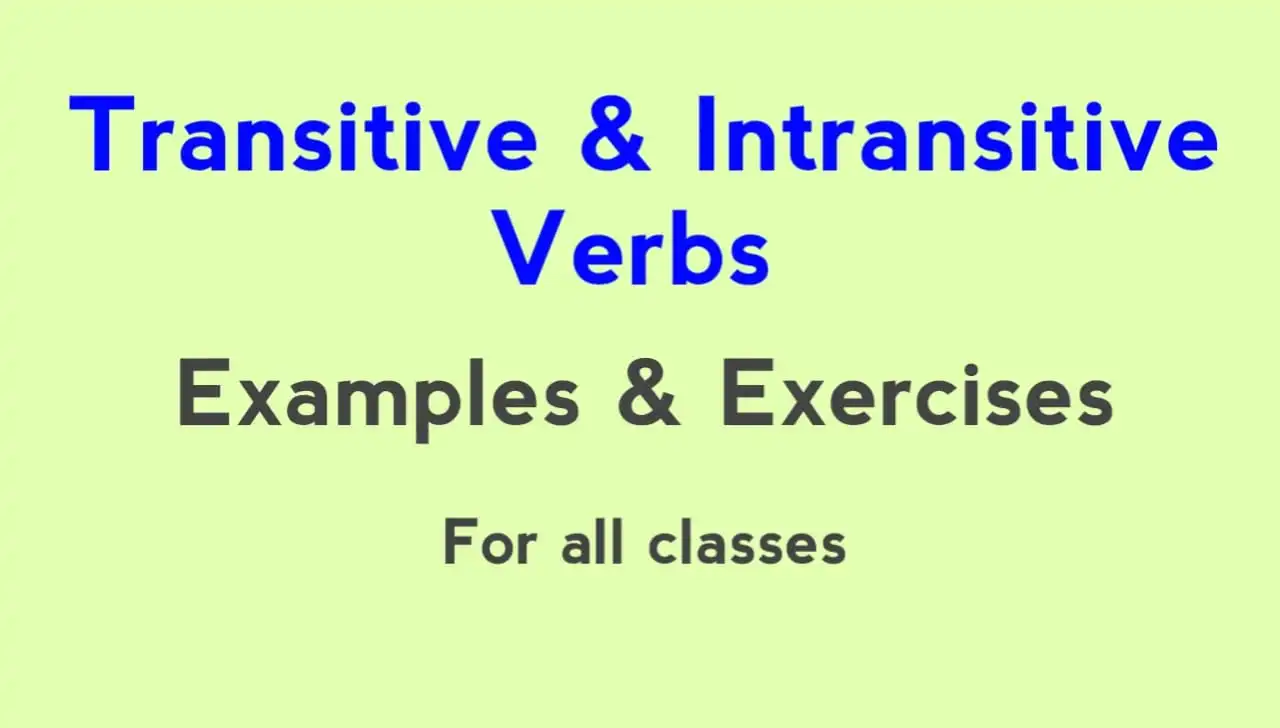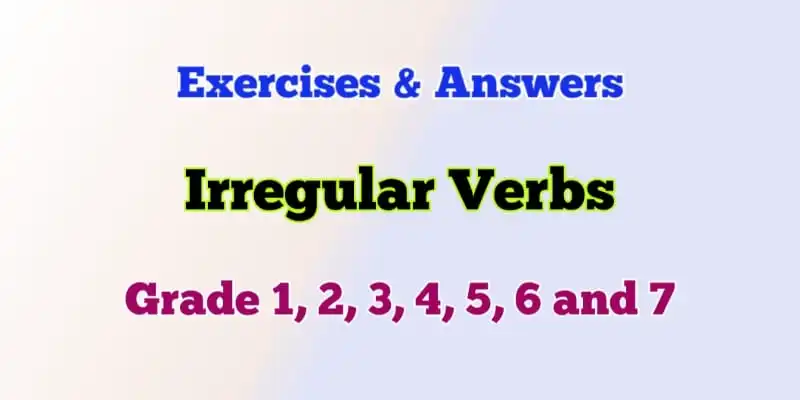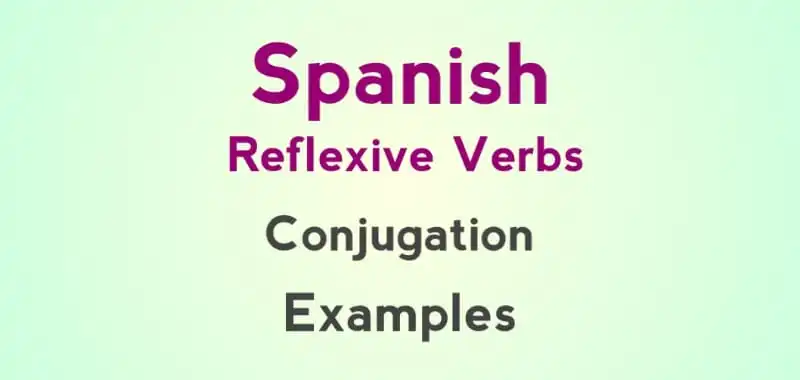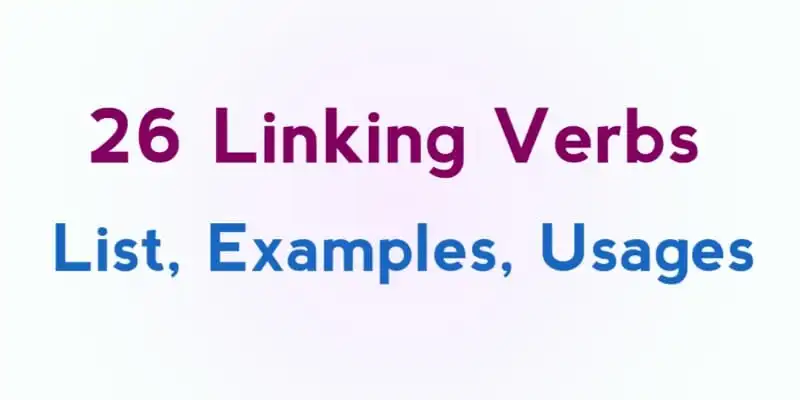Transitive and Intransitive Verbs: Examples Exercises Answers have been discussed below with Examples in Sentences. Transitive and Intransitive Verbs: Transitive Verbs require an Object to make the sense clear whereas Intransitive Verbs do not require an Object to make the sense clear.
Transitive and Intransitive Verbs can be identified whether the verbs have Objects or not. If the verb has Object, it is generally considered as Transitive Verb. If the Verb does not have Object, it is generally considered as Intransitive Verb.
What are Transitive Verbs
“A verb is Transitive if the action does not stop with the agent but passes from the agent to something else.” – J.C Nesfield.
Transitive Verbs are those verbs that require an object to make the sense clear.
(1) He eats rice.
(2) They play football.
(a) In the above two sentences, eats, and play, are called verbs as they are doing words.
(b) In sentence (1) ‘eats’ and in sentence (2) ‘play’ require an object to make sense clear. So, they are called Transitive Verbs.
Read more about Nouns:
| Proper Noun | Material Noun |
| Common Noun | Abstract Noun |
| Collective Noun | Countable and Uncountable Nouns |
| Concrete and Abstract Nouns | Singular and Plural Noun & Number |
| Gender in English Grammar |
Identify Transitive Verbs:
To identify a Transitive or Intransitive Verb, we must determine whether the verb has an object.
What is an Object?
If we ask a ‘Verb’ with ‘whom’ or ‘what’, the answer we get is called an object.
The following picture will help how to find out Transitive verbs easily.

Transitive Verbs Examples in Sentences.
Following Transitive Verbs Examples are marked with italics and the Objects are marked with Italics bold. All the following verbs have answers if asked with ‘what’ or ‘whom’. That means all the verbs have Objects. So, they are Transitive Verbs.
1. He is eating rice.
What ‘eating’ = rice.(Object)
2. We have caught a thief.
Whom ‘caught’ = a thief.(Object)
3. He did the work.
What ‘ did’ = the work.(Object)
4. My mother prepares breakfast.
What ‘prepares’ = breakfast (Object)
5. I shall see the man.
Whom ‘see’ = the man. (Object)
6. She has bought a pen.
What ‘bought’ = a pen. (Object)
7. He wants water.
What ‘ wants’ = water. (Object)
8. He gave me a present.
Whom ‘gave’ = me(Object) ; What ‘gave’ = a present. (Object)
9. Mr. Das teaches us English.
Whom ‘teaches’ = us(Object) ; What ‘teaches’ = English. (Object)
10. My grandmother told me a story.
Whom ‘told’ = me(Object) ; What ‘told’ = a story. (Object)
Some of the above Transitive Verbs have two objects.
Transitive Verbs with two objects Examples:
Direct & indirect object:
When Transitive Verbs ( like, give, tell, ask, teach, show, send, etc) take two objects. One object is generally a thing; this is called Direct Object or Accusative. The other object is generally a person or animal and is called an indirect object or Dative.
| Subject | Verb | Indirect Object | Direct Object |
| He | gives | me | a pen. |
| I | told | him | this. |
| The teacher | asked | her | a question. |
| My mother | teaches | me | English. |
According to Sentence Pattern Indirect Object is always placed before Direct Object.
Retained object:
Some Transitive Verbs take two objects in the active voice. In the passive, one of these becomes the subject, but the other is retained as an object and is called retained object.
Example:
- Active – My mother teaches me English.
- Passive – I am taught English by my mother.
Cognate object.
Some Transitive Verbs take after them an object similar to the verb. Such object is called Cognate object.
- He lived a pure life.
- I ran a race.
- He slept a beautiful sleep.
- I dreamt a sweet dream.
Factitive Object:
Some Transitive Verbs ( usually of naming, making, thinking) sometimes require some other words besides its object to make the sense clear. Such words are called Factitive Object.
- He called me a fool.
- I took him prisoner.
Transitive Verbs of Incomplete Predication
When Transitive Verbs remain incomplete without some word or words besides object, it is called Transitive Verbs of Incomplete Predication.
Sometimes Transitive Verbs needed words or words besides their objects to complete the sense. Those word or words are called Complements.
Example: I saw him go.[ go = complement]
Complements of Transitive and active Verbs relate to the Object and are called Objective Complements.
Example: We struck him dead. [ dead = Objective Complements ]
Objective Complements of Transitive Verbs = Factitive Object. Factitive verbs =Transitive verbs of Incomplete Predication
Verbs of naming (name, call, term etc), making (make, create, appoint etc), thinking ( think, suppose, believe etc) generally take Objective Complements.
Transitive Verbs Examples with Objective Complements:
- He called me a fool.
- We named him Manish.
- He thinks the man cleaver.
- I consider him honest.
- They appointed or elected him, President.
- He made me slave.
- I cut him short.
- He bought the house new.
- He painted the house blue.
[ Bold words are Transitive Verbs of Incomplete Predication or Factitive Verbs and Italics words are Objective Complements or Factitive Objects ]
Transitive verbs can be used as Intransitive Verbs:
A Transitive Verbs becomes Intransitive in the following cases when
(a) In a general sense that the object can be understood
- Fire burns.
- We eat to live.
(b) The reflexive pronoun is omitted.
- Move (yourself) aside.
- He keeps( himself) aloof.
- He drew (himself) near me.
(c) An adverb is added to the verb.
- Cholera has broken out.
(d) The Verb is used quasi-passively.
- Rice sells cheap.
Quasi-Passive Verbs are used in the active voice with a passive force.
- Rice sells(=is sold) cheap.
- Honey tastes sweet(=is sweet when it is tasted).
- The reads well(=sounds or affects a reader well when it is read).
- This book is printing(=is being printed).
- The cows are milking(=are being milked).
- The house is building(=is being built).
Transitive Verbs Exercises with Answers
Find out the Object and Complements of the following Transitive verbs.
(1) I consider him honest.
Ans : him – object; honest – complement
(2) They appointed or elected him, President.
Ans : him – object; President. – complement
(3) He made me slave.
Ans : me– object; slave. – complement
(4) I cut him short.
Ans : him– object; short – complement
(5) He bought the house new.
Ans : the house– object; new– complement
(6) He lived a pure life.
Ans : life– object;
(7) I ran a race.
Ans : race– object;
(8) He slept a beautiful sleep.
Ans : sleep – object;
(9) I dreamt a sweet dream.
Ans : dream – object;
(10) I told him this.
Ans : him– object; this– complement
What are Intransitive Verbs
“A verb is Intransitive when the action stops with the agent and does not pass from the agent to anything else.” – J.C Nesfield.
Intransitive Verbs are those verbs that do not require an object to make the sense clear.
- Birds fly.
- He sleeps.
(a) In the above two sentences, fly, sleep, are called verbs as they are doing words.
(b) In sentence (1) ‘fly’ and in sentence (2) ‘sleeps’ does not require an object to make sense clear. So, they are called Intransitive Verbs.
Identify Intransitive verbs:
The following picture will help how to find out Intransitive verbs easily.

Intransitive Verbs Examples in Sentences.
Following Intransitive Verbs Examples are marked with Italics bold. There are no answers if asked the following verbs with ‘ whom’ or ‘what’. That means they have no Objects. So, they are Intransitive Verbs.
Examples:
- I run.
- The tree falls.
- Lie still.
- Wheat grows here.
- Sit here.
- He is ill.
- She seems tired.
- He becomes alert.
- You look sad.
Intransitive Verbs of Incomplete Predication
Sometimes Intransitive Verbs need some extra words or words to complete the sense. That means without that word or those words the sense of Intransitive Verbs remains incomplete. Such Intransitive Verbs are called Intransitive Verbs of Incomplete Predication.
Sometimes Intransitive Verbs needed words or words besides the predicate-Verb to complete the sense. Those word or words are called Complements.
Example: She is a fool. [ fool = Complement]
Complements of Intransitive and Passive Verbs relate to the Subject and are called Subjective Complements.
Example: You are made Secretary. [ Secretary = Subjective Complement]
When Intransitive Verbs require word or words besides the predicate-Verb to complete the sense, those Intransitive Verbs are called Copulative Verbs or Intransitive Verbs of Incomplete Predication.
Example: You seem tired. [seem = Copulative Verbs or Intransitive Verbs of Incomplete Predication. ]
Example: She is ill. [is = Copulative Verbs or Intransitive Verbs of Incomplete Predication. ]
Intransitive Verbs of Incomplete Predication = Copulative Verbs.
The common Intransitive Verbs that require Subjective Complements are the verbs to be, become, seem, remain, look, grow. They are called Verbs of Incomplete Predication.
Examples :
- He is angry with me.
- He becomes alert.
- You seem displeased.
- He looks miserable.
- He remains disconnected.
- He grew up quite healthy.
The verbs to be, become, remain, look, and grow, can also be used as Verbs of Complete Predication.
Examples :
- God is.
- Look at me.
- Remain there.
- This plant will not grow.
Intransitive Verb can be used as Transitive Verbs:
An Intransitive Verb becomes a Transitive Verb in the following cases when
(a) An intransitive verb is used in a causative sense ( things to be done). Such Intransitive Verbs are called Causative Verbs.
| Intransitive verbs | Intransitive verbs = Causative Sense = Transitive Verbs |
| Rice grows here. | Farmers grow rice in the field |
| The horse walks. | He walks the horse. |
| Birds fly. | He flies a kite. |
| Water boils. | Boil this water. |
| Don’t move. | Move the chair. |
| The boy ran in the road. | He ran the machine smoothly. |
| The car turned left. | He turned the handle of the almirah. |
| The boat floated. | He floated the boat. |
A few intransitive verbs have different forms to express a causative idea.
| Intransitive verbs | Intransitive verbs = Causative Sense = Transitive Verbs |
| Sit= Sit here. | Set= Set the lamp here. |
| Lie= Lie still | Lay= Lay it here. |
| Rise= Rise early. | Raise= Raise your hand. |
| Fall= The tree falls. | Fell= He fells the tree with an axe. |
(b) A preposition is added after an Intransitive Verbs and formed Prepositional or Group Verbs. These Prepositional or Group Verbs are used as single Transitive verbs.
- Please look into the matter.
- The teacher asked for his name.
- He laughed at them.
- He acted on this rule.
- He will soon run through his fortune.
- I wish for nothing more.
(c) ‘with’ or ‘over’ placed before verbs.
- He overcame the difficulties.
- We withstood the attack.
- The river overflows the bank.
- They decided to withdraw from the strike.
(d) Reflexive or Personal Object is added.
- They set them down.
(e) A cognate object is used after it.
- He ran a race.
Verbs Used both as Transitive and Intransitive verbs.
Most verbs can be used both as Transitive and as Intransitive verbs. Examples of such verbs given below.
| Used Transitively. | Used Intransitively. |
| Ring the bell. | The bell rang loudly. |
| He spoke the truth. | He spoke haughtily. |
| The driver stopped the train. | The train stopped suddenly. |
| The horse kicked the man. | The horse never kicks. |
| I feel a pain in my head. | How do you feel? |
| He fought the enemy. | He fought bravely |
| The storm sank the ship | The ship sank rapidly. |
Summary of Transitive and Intransitive Verbs.
Transitive Verbs
Transitive Verbs must have one Object or sometimes more than one Objects.
Double Object Transitive Verbs – like, give, tell, ask, teach, show, send.
Transitive Verbs sometimes needed Complements to complete the meaning besides Objects. Those complements are called Objective Complements as they relate to the object.
Transitive Verbs needed Complements – name, call, term, make, create, appoint, think, suppose, believe, cut, bought, painted etc.
They are called Transitive Verbs of Incomplete Predication.
Transitive Verbs can be used Intransitively.- when Reflexive pronoun omit; adverb added to the verb; verb used quasi-passively.
Intransitive Verbs.
Intransitive Verbs generally does not need Objects to complete the sense.
Sometimes Intransitive Verbs need extra word or words to complete the sense besides predicate-verb.
Those word or words are called Complements.
Complements of Intransitive verbs are Called Subjective Complements as they relate to subjects.
Intransitive Verbs needed Complements – to be, become, seem, remain, look, grow, appear.
They are called Intransitive verbs of Incomplete Predication.
Intransitive Verbs can be used Transitively in Causative sense ; grouped preposition.
Transitive Intransitive Verbs Exercise with Answers.
Exercises on Transitive and Intransitive Verbs are given with Answers.
Exercise 1
1. Find out whether the Verbs in the following sentences are Transitive or Intransitive. If Transitive, write the Object beside it.
1. Tell the truth.
Ans : Tell – Transitive ; Object – the truth
2. The birds sing in the green trees.
Ans : sing – Intransitive
3. The little bird hopped about and sang.
Ans : hopped – Intransitive ; sang – Intransitive
4. My new watch does not keep good time.
Ans : does not keep – Transitive; Object – good time
5. The beggar sat down by the side of the road.
Ans : sat – Intransitive
6. I could (not )spare the time.
Ans : could (not) spare– Transitive; Object – the time.
7. He took shelter under a tree.
Ans : took– Transitive; Object – shelter
8. The boy easily lifted the heavy weight.
Ans : lifted– Transitive; Object – the heavy weight.
9. Balu wrote a letter to his uncle.
Ans : wrote– Transitive; Object- a letter
10. A tiny bird lived under the caves.
Ans : lived- Intransitive
Exercise 2
11. I know a funny little man.
Ans : know– Transitive; Object- a funny little man.
12. Birds fly in the air.
Ans : fly- Intransitive
13. A light rain fell last night.
Ans : fell- Intransitive
14. I shall bring my camera with me.
Ans : bring– Transitive; Object- my camera
15. You speak too loudly.
Ans : speak- Intransitive
16. The dog ran after me.
Ans : ran- Intransitive
17. The sun shines brightly.
Ans : shines- Intransitive
18. The boy cut his hand with a knife.
Ans : cut– Transitive; Object- his hand
19. The clock stopped this morning.
Ans : stopped- Intransitive
20. The policeman blew his whistle.
Ans : blew– Transitive; Object- his whistle.
Exercise 3
21. The sun rises in the east.
Ans : rises- Intransitive
22. An old beggar stood by the gate.
Ans : stood- Intransitive
23. The clock ticks all day long.
Ans : ticks- Intransitive
24. I looked down from my window.
Ans : looked- Intransitive
25. Put away your books.
Ans : Put– Transitive; Object- your books.
26. The moon rose early.
Ans : rose- Intransitive
27. The cat sleeps on the rug.
Ans : sleeps- Intransitive
28. Cocks crow in the morning.
Ans : crow – Intransitive
29. Your book lies on the table.
Ans : lies- Intransitive
30. The fire burns dimly.
Ans : burns- Intransitive
31. Time changes all things.
Ans : changes– Transitive; Object- all things.
32. We eat three times a day.
Ans : eat- Intransitive
2. Write whether the Verbs are Transitive or Intransitive. Write the Object of the Transitive Verbs and Complements of the Verbs of Incomplete Predication.
Exercise 1
1. They elected him president.
Ans : elected- Transitive; Object – him; Complement – president
2. I found her weeping.
Ans : found- Transitive; Object – her; Complement – weeping
3. He struck the man dead.
Ans : struck- Transitive; Object – the man; Complement – dead
4. The crow flew down and stole the cheese.
Ans : flew- Intransitive; stole- Transitive; Object – the cheese
5.The sky looks threatening.
Ans : looks- Intransitive; Complement – threatening.
6. They made him general.
Ans : made – Transitive; Object – him; Complement – general.
7.He waited an hour.
Ans : waited- Intransitive.
8.New brooms sweep clean.
Ans : sweep- Intransitive; Complement – clean.
Exercise 2
9.The weather is hot.
Ans : is – Intransitive; Complement – hot.
10. They are Europeans.
Ans : are – Intransitive; Complement – Europeans
11. The rumour seems true.
Ans : seems – Intransitive; Complement – true.
12. Owls hide in the daytime.
Ans : hide – Intransitive.
13. Bad boys hide their faults.
Ans : hide – Transitive; Object – their faults.
14. The poor woman went mad.
Ans : went – Intransitive; Complement – mad.
Exercise 3
15. We waited patiently at the station.
Ans : waited – Intransitive.
16. He told a lie.
Ans : told – Transitive; Object – a lie
17. The wind is cold.
Ans : is – Intransitive; Complement – cold.
18. The results are out.
Ans : are – Intransitive; Complement – out.
19. He tried again and again.
Ans : tried – Intransitive.
20. We see with our eyes.
Ans : see – Intransitive.
21. The child fell asleep.
Ans : fell – Intransitive; Complement – asleep.
22. The hungry lion roars.
Ans : roars – Intransitive.
23. The report proved false.
Ans : proved – Intransitive; Complement – false.
24. The boy stood on the burning deck.
Ans : stood – Intransitive.
25. The child had fallen sick.
Ans : fallen – Intransitive; Complement – sick.
26. The ass continued braying.
Ans : continued –Transitive; Object- braying.







